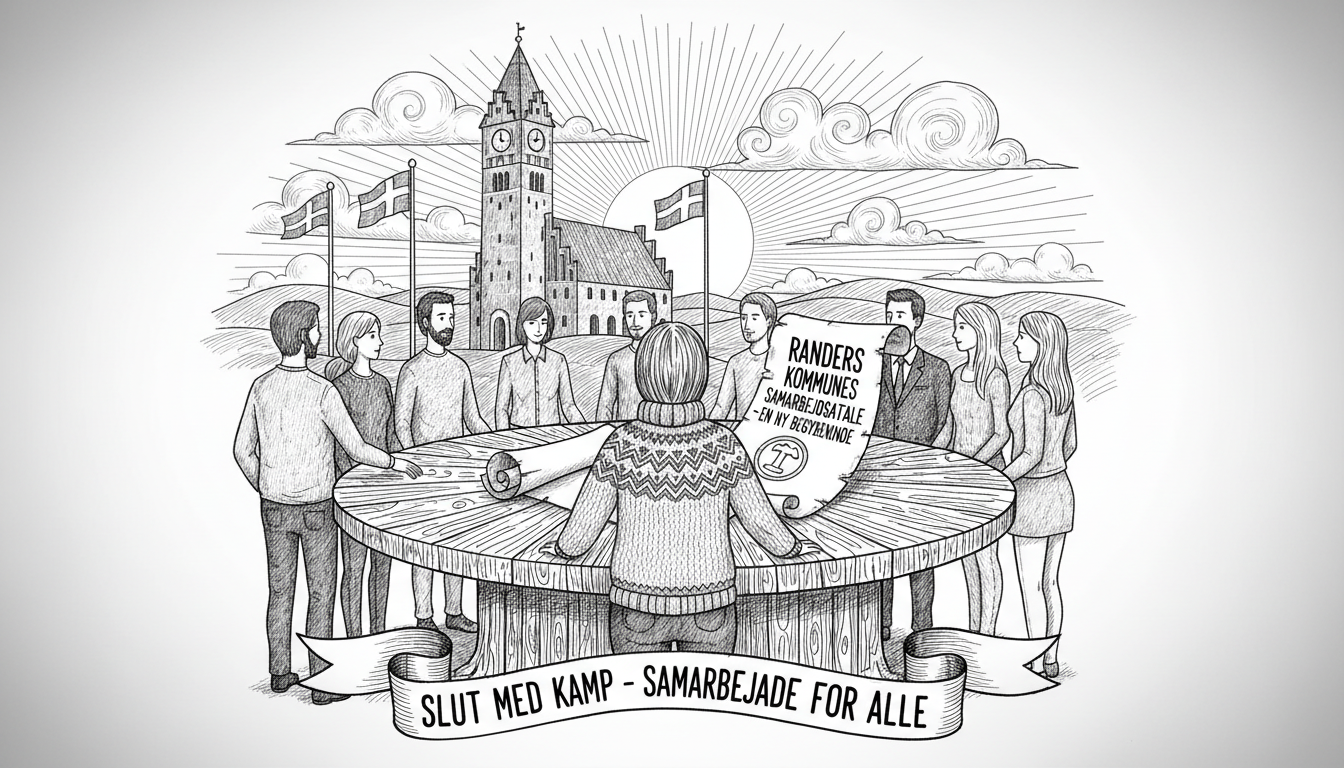Randers Municipality has turned a new political page after a marathon negotiation session produced an unprecedented cooperation agreement. The Danish municipality, long plagued by internal conflicts, now has Socialistisk Folkeparti's Rosa Lykke Yde as its new mayor, marking a significant shift in local governance.
The overnight negotiations resulted in a broad coalition spanning eight parties from across the political spectrum. This diverse alliance includes everything from the left-wing Enhedslisten to the right-wing Dansk Folkeparti, creating an unusual political constellation rarely seen in Danish municipal politics.
Rosa Lykke Yde appeared visibly moved when presenting the new council early this morning. She expressed surprise at the election outcome and the number of new council members willing to join her in charting a new direction. The emotional atmosphere contrasted sharply with the municipality's recent political history.
What makes this agreement particularly noteworthy is its explicit focus on cooperation. For years, Randers Byråd has been described as having a notoriously toxic work environment with severe collaboration difficulties. Local residents and political observers alike had grown accustomed to the constant infighting that characterized municipal operations.
The new mayor emphasized that this exact problem prompted the creation of what she calls a 'cooperation constitution.' This novel approach to municipal governance specifically writes collaboration requirements into the formal agreement. The concept aims to ensure citizens experience a more unified council that sets a fresh course for the municipality's future.
Notably absent from the agreement are two of Denmark's traditional powerhouse parties: Socialdemokratiet and Venstre. Both declined to support an SF-led mayor, maintaining their historical positions. The outgoing Social Democratic mayor, Torben Hansen, saw his personal vote count halved compared to the previous election, reflecting voter dissatisfaction with the status quo.
Political analysts note that Randers represents a broader trend affecting Social Democrats across Danish municipalities. Voters appear increasingly willing to punish established parties and experiment with new political configurations. This shift reflects growing public impatience with traditional political divisions and a hunger for more functional local government.
The new mayor acknowledged the challenges ahead but expressed confidence in her ability to work constructively with all parties, including those outside the formal agreement. She emphasized her intention to extend olive branches and build bridges across political divides.
For international observers, this development offers insight into Denmark's decentralized political system where municipalities wield substantial power over local services and infrastructure. The Randers experiment in forced cooperation could become a model for other municipalities struggling with similar governance challenges.
The true test will come as the new council begins tackling practical issues facing the municipality. From urban development to welfare services, the broad coalition must translate its written cooperation into tangible results for Randers' citizens.

